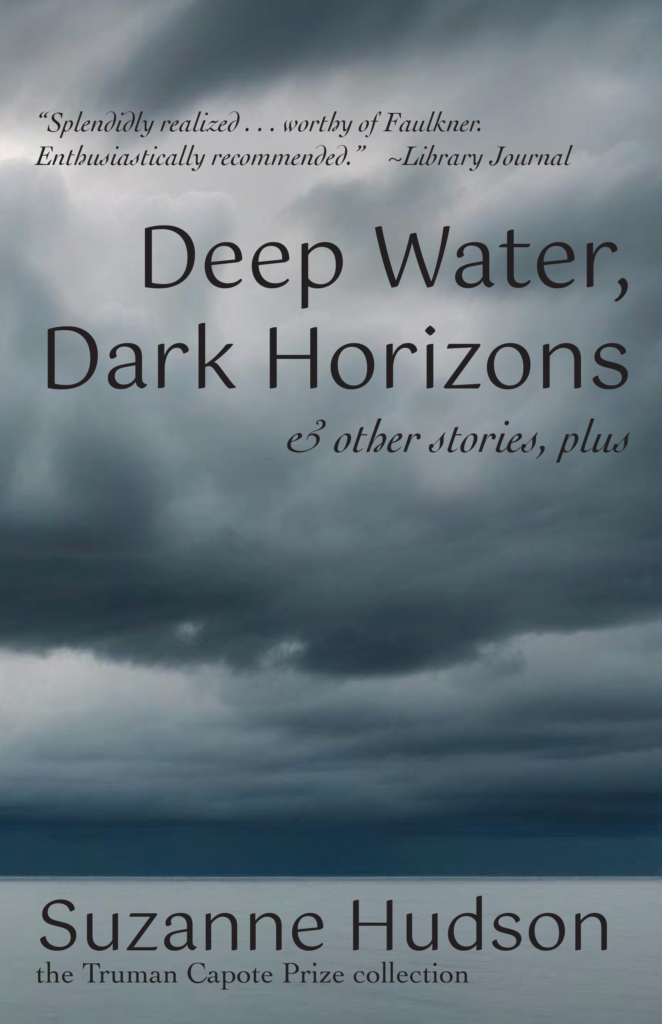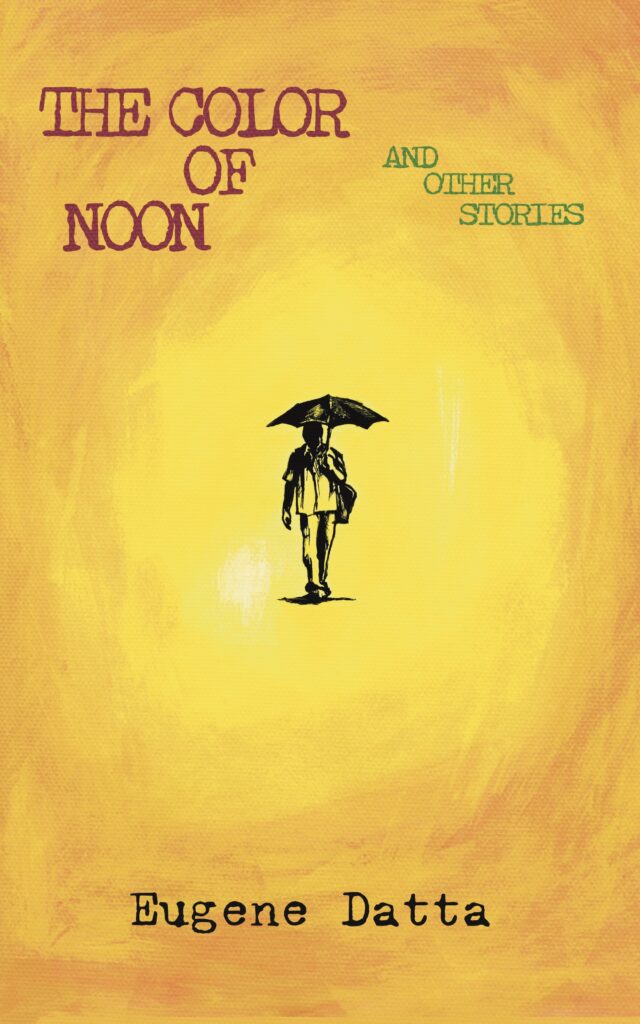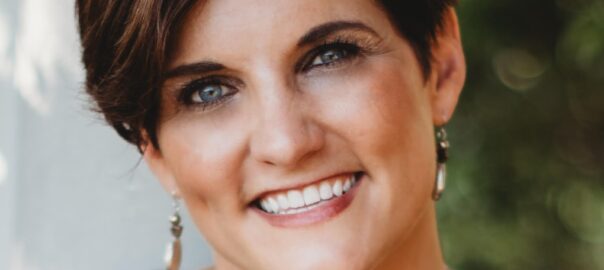by Susan Tekulve
The stories in Eugene Datta’s remarkable debut collection, The Color of Noon, are visually striking. With a painter’s eye for detail and a poet’s sensibilities, Datta summons all the senses to create the atmosphere in which his characters exist. In the story, “Rain,” the protagonist sees “scarves of rain wrapping and unwrapping themselves around a streetlamp.” In another story, “Movie Star,” Datta evokes an entire neighborhood market, where “gossip hummed like flies on the piles of mango and papaya.” In the title story, “sunlight on the window ledge is the color of noon.” Synesthetic details abound in these ten stories set in Calcutta, where characters seek relief from unrelenting noon heat in monsoon rains and darkness.
These and other images accumulate in the collection, unifying stories about characters who often live on the fringes of the city. Free of cultural norms and religious traditions, their souls are exiled and conflicted to varying degrees, their humanity exposed so the reader may see more clearly their light and dark urges. In “Hammer and Sickle,” a young female schoolteacher arranges a romantic rendezvous with an elderly Communist insurrectionist in an abandoned mental asylum. In “Movie Star,” a god-like film idol returns home to take over his father’s furniture store, becoming lusterless yet more humane as time passes. In the breathtakingly beautiful and moving story, “A Minute’s Silence,” an ailing filmmaker scripts his own dying so his son won’t be bogged down with the practical details that follow a loved one’s death. Whether they are attempting a great kindness, or suffering the effects of crime, alienation, or betrayal, Eugene Datta’s complex characters, like his images, are quietly developed. These stories seem understated at first, but upon second reading they simmer and burst with color, light, taste, and sound.
ST: One of the more striking aspects of your writing is your command of atmospheric details. Do your stories typically arise out of place, or do they evolve out of characters and events?
ED: I like looking at things closely. The physical details of a place, for instance. Shapes, colors, the sense of space, the play of light and shadow, and so on. And I try to mentally absorb whatever I can from whatever is available—sound, smell, mood. But I’m also horribly inept and inconsistent, which means that I cannot pick up all the available information equally well. A lot of what I’m exposed to remains out of my attentional focus. And I don’t take notes. So, my mental pictures of particular places or situations largely depend on a handful of the most prominent details, which I try to describe as faithfully as I can when I write about those places/situations, or things similar to them. Now, do my stories arise out of places? Or my memory of them? Maybe they do, who knows! What I’m a bit more certain about, though, is that, when I find a character to write about, or am gripped by an image, a set of images, or an idea, I try to place them in settings concocted from my memory, or imagination, of particular places.
ST: I noticed you created the cover art for this book. In what ways does your work as a visual artist influence your stories? Is there any “cross pollination” as you move between the visual arts and the literary arts?
ED: I take interest in the way things appear, the way they present themselves to the eye. Not because I expect to find meaning there (we know that appearance doesn’t divulge essence, don’t we?), but because of the pleasure of sight, the simple yet richly sensual quality of it. Both as an image maker (artist/photographer) and a writer, part of what I try to do is describe the appearance of things, or, to be more precise, the way I receive the appearance and respond to it, and do it with as much fidelity as I’m capable of. I’m sure some cross pollination between the art forms I dabble in happens on this level, or on a much deeper one, which I cannot even pretend to be aware of. That said, I think of my fiction as being impressionistic in style, and I’m a big fan of impressionistic art.
ST: Certain images recur and conflict with each other throughout this collection. The characters actively suffer at noon, during the heat of the day. They find a great amount of relief from rain, and even the monsoons serve as a kind of balm or source of renewal. One of the characters in “Rain” remarks, “An hour of rain and already he’s a new man.” Is there any cultural significance, (specific to India), in the images woven through the collection?
ED: The images represent particular ways of being—particular ways in which lives are lived within certain sections of society in a certain urban setting. I don’t think they’re representative, except in a very broad sense, even of Calcutta, where all the stories are set. On the other hand, their heterogeneity and the ways in which they often showcase particular pieces of culture, make them unmistakably Indian, or even Calcutta-specific. The image of goddess Kali in ‘Rain’, for instance, and the reverence shown to it by the teashop owner and the men the protagonist is sharing the table with, is one such detail. There’s also this loud-mouthed communist party supporter in the same scene. This, I’d say, is quite specific to Calcutta. Which, of course, is not to suggest that a scene like this couldn’t occur in Bombay or Delhi. It’s just that, it would be more “typical” of Calcutta than of any other Indian city.
Speaking of specificity of this kind, in ‘A Minute’s Silence’, the image “A koel sang in the darkness. Himadri remembered how his wife loved hearing the bird at night. Bonolota, he muttered, his eyes welling up with tears. Only darkness now….” carries a very subtle, very oblique reference to a poem titled ‘Banalata Sen’ by Jibanananda Das, one of Bengal’s greatest modern poets. Roughly translated, the final line of the poem, one of the best love poems I’ve read in any language, would read: “Only darkness remains, and Banalata Sen to sit face to face with.” (I haven’t yet come across an English translation of the poem that does justice to the Bengali original.) Unlike the poet, Himadri doesn’t have his Bonolota (although spelled differently, it’s the same name in Bengali) and is left only with darkness. The reference is almost invisible. And it’s not important at all in the larger scheme of the story. It’s like a single brush stroke in a painting with the faintest suggestion of light. It’s there just to add a subtle layer of poignancy to the image for those who notice it. And not noticing it, of course, won’t take anything away from the mood of the image. Here’s another example that’s also somewhat relevant: Toward the end of ‘Hammer and Sickle’, the insurgent says to his lover, the protagonist, “Whoever discovers the who of me…,” quoting Pablo Neruda. It’s not at all uncharacteristic of a hard-core Naxal like him to quote a foreign (Latin American or Russian) thinker or poet. Again, it doesn’t matter if someone gets it or not, but it’s a detail specific to Calcutta and its sociopolitical life in the 60s and 70s. These characters and their individual worlds are vastly different from those we find in ‘New Life’, for instance, or in ‘Movie Star’, or ‘The Color of Noon’, although all these lives and worlds are contained within a single urban universe.
ST: How does the repetition of images (heat, rain, crows, lush gardens filled with bougainvillea and mango trees, crumbling/derelict cityscapes) help you to advance your stories, or even help you to advance the entire story collection?
ED: The images recur because all the stories are set in one city. Although the stories themselves are very different (they’re set in different times, and are about people who’re different from one another), the recurring images run through them as a unifying thread. Also, from story to story, they consolidate (at least I hope they do) the sense of place in the reader’s mind. I didn’t, of course, think about any of this when I wrote them, which I did over several years.
ST: In your stories, traditional Indian mythology and religions seem to be missing from the lives of your central characters. Instead of worshipping the “old gods,” one of your characters worships an American pop star. In another story, a community of boys worship a fallen film idol. When these new gods fail to meet the expectations of your characters, your characters appear to suffer a kind of identity crisis and extreme isolation. Is this spiritual crisis specific to modern India, or do you believe this crisis transcends the borders of India?
ED: I suppose it’s because I’ve always been interested in the fringes. Realities on the peripheries of dominant cultures appeal to me in a way their mainstream counterparts don’t. I’m drawn to lives in which different modes of existence blend into one another in unpredictable ways. Cultures in which the contours of behavior are not defined too rigidly, like those of objects in an impressionistic painting, if you will. Where the grip of convention is loose enough to allow a relatively free and open expression of humanity, one that’s not circumscribed by dogma or the dictates of particular traditions. As for traditional mythologies and religions, well, writers far more able than I have addressed them and used their stories more effectively than I ever could. Besides, I’m interested in other kinds of stories.
ST: I have to admit, I knew very little about the Communist Revolution in India before reading your book. A cynical old “ex-Naxal” who considers himself a failed revolutionary appears in “Epitaph.” A “scrawny and bearded” old Communist insurrectionist hides out in an abandoned mental asylum in “Hammer and Sickle.” What questions are these stories posing about the nature of “extremism” in India?
ED: The Naxal movement in West Bengal, in the late 60s and 70s, was spearheaded by a group of educated young men and women. They were well-read, highly motivated, and hated the bourgeoisie. Their violent insurrection was put down with equal violence. After capitulation, many of the surviving Naxals left the country and went to universities in North America. I believe the movement is alive in various parts of the country, and perhaps also in West Bengal, but I’m not sure exactly how its current iterations map onto that original movement. I’m also not sure if the book’s references to an insurgency of more than half a century ago can necessarily say anything about extremist movements in India in general. But then I’m not an expert. A historian would be better placed to answer this question. It seems to me, though, that the original Naxals were very different, given their secular education and ideals, from their counterparts elsewhere in the country both then and now.
ST: You were writing and publishing poetry before you published this short fiction collection. Do you have any new projects planned in either genre?
ED: I’ve written a couple of small poems since ‘The Color of Noon’ came out. And I’m tinkering with two longer pieces of fiction. Who knows how long it’ll take me to finish them.
*****
Eugene Datta is the author of the poetry collection Water & Wave (Redhawk, 2024). He has worked as a newspaper journalist, a book reviewer, and an editor, and has had his fiction and poetry appear in publications such as Common Ground Review, The Dalhousie Review, Main Street Rag, Mantis, The Bombay Literary Magazine, Hamilton Stone Review, The Bangalore Review, and elsewhere. A recipient of the Stiftung Laurenz-Haus fellowship, he has held residencies at Ledig House International Writers’ Colony, and Fundación Valparaíso. A native of Calcutta, he lives with his wife and two children in Aachen, Germany. The Color of Noon is his first collection of stories.
Susan Tekulve’s newest book Bodies of Light is her first full-length poetry collection. She is the author of Second Shift: Essays (Del Sol Press) and In the Garden of Stone (Hub City Press), winner of the South Carolina Novel Prize and a Gold IPPY Award. She’s also published two short story collections: Savage Pilgrims (Serving House Books) and My Mother’s War Stories (Winnow Press). Her photo essay, “White Blossoms,” appeared in Issue 12 of the KYSO Flash Anthology. Her nonfiction, fiction, and poetry has appeared in journals such as Denver Quarterly, The Georgia Review, The Louisville Review, Puerto del Sol, New Letters, and Shenandoah. Her web chapbook, Wash Day, appears in the Web Del Sol International Chapbook Series, and her story collection, My Mother’s War Stories, received the 2004 Winnow Press fiction prize. She has received scholarships from the Sewanee Writers’ Conference and Bread Loaf Writers’ Conference. She teaches in the BFA and MFA writing programs at Converse University.






